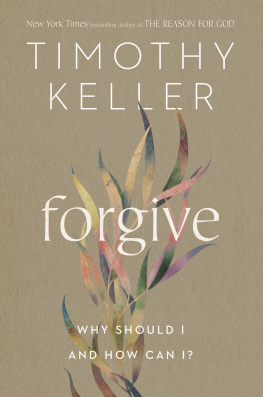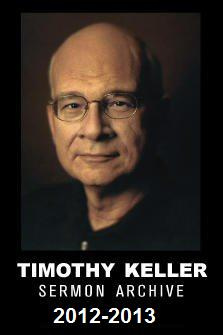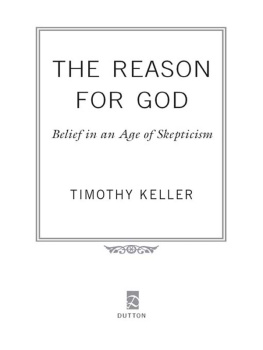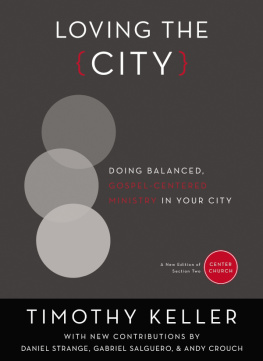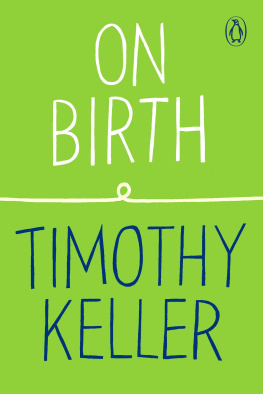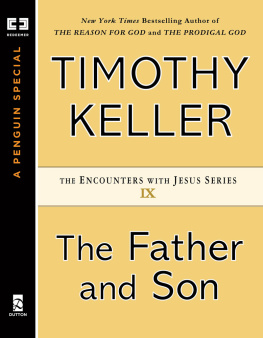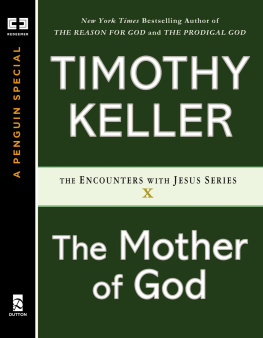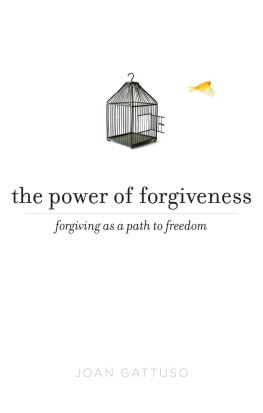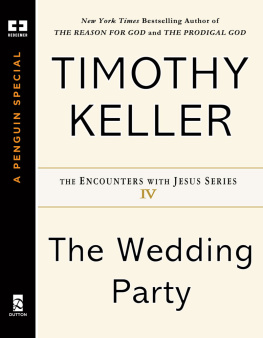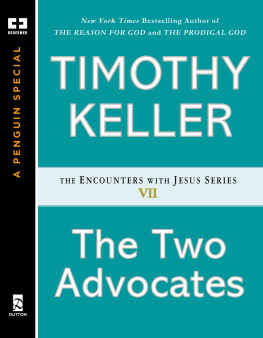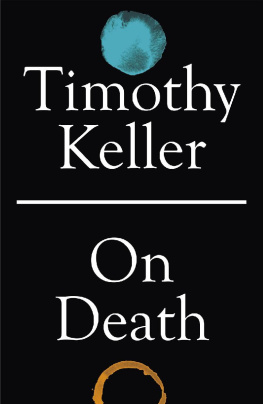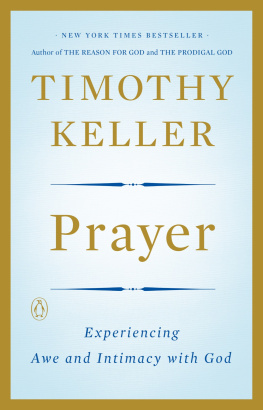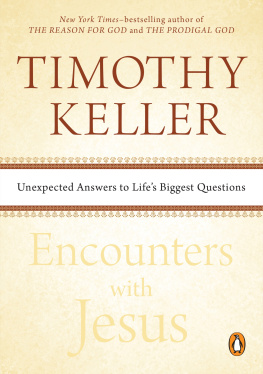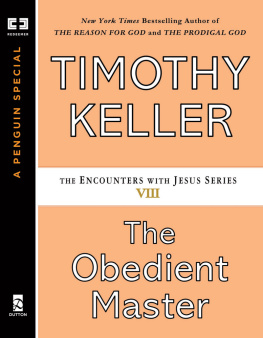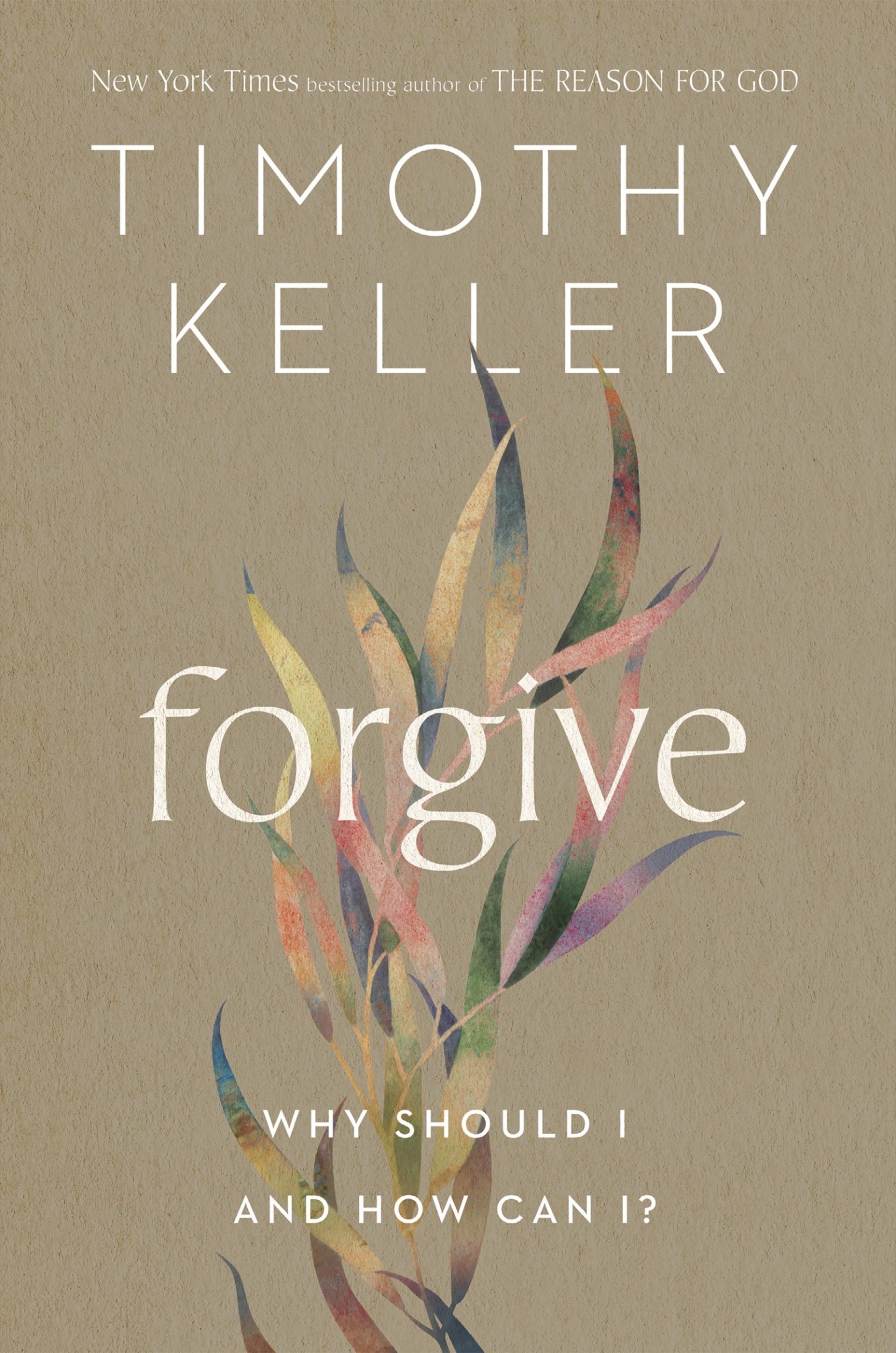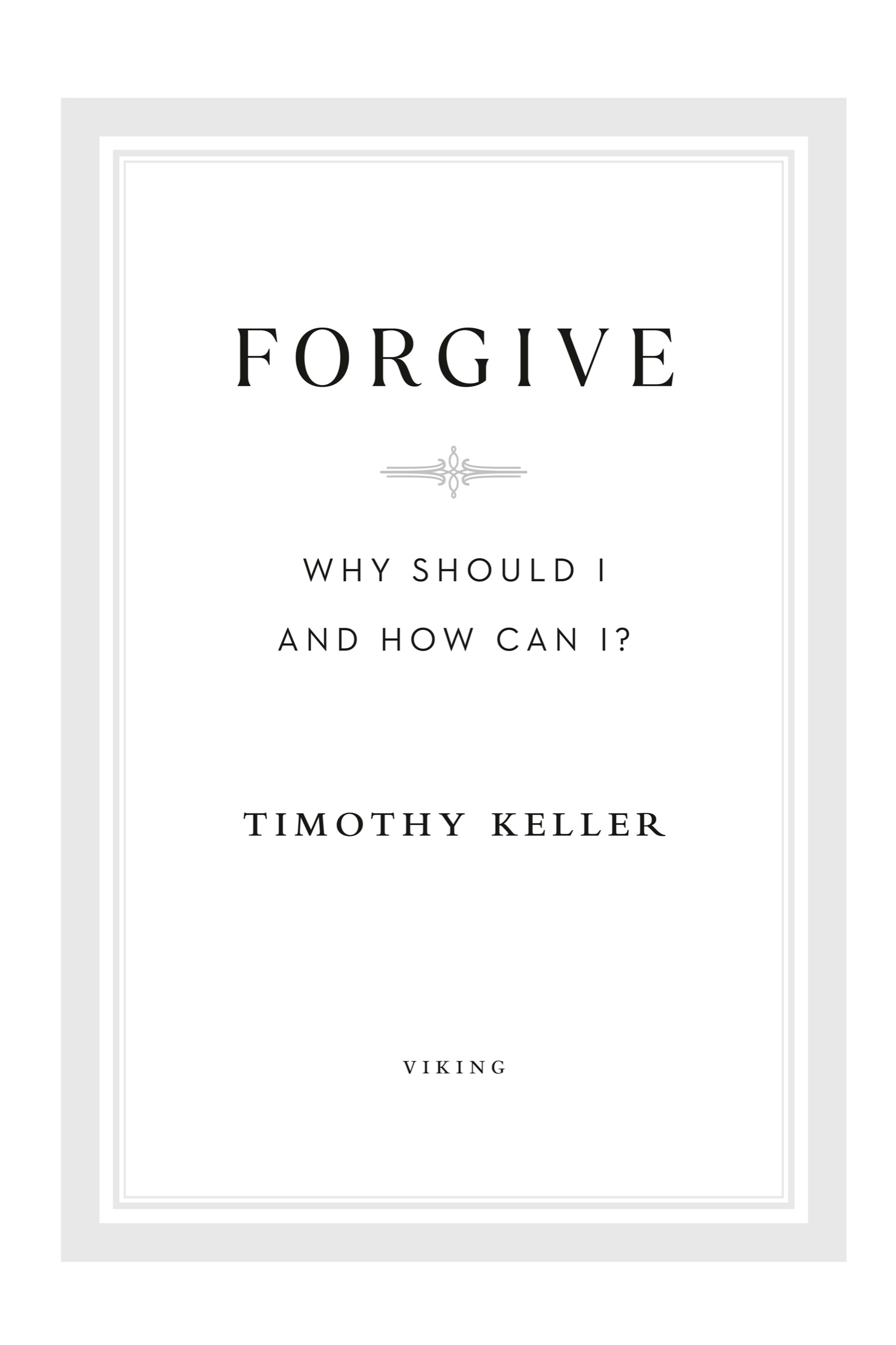also by the author
The Reason for God
The Prodigal God
Counterfeit Gods
Generous Justice
Jesus the King
The Meaning of Marriage
Center Church
Every Good Endeavor
Walking with God through Pain and Suffering
Encounters with Jesus
Prayer
Preaching
The Songs of Jesus
Making Sense of God
Hidden Christmas
Gods Wisdom for Navigating Life
The Prodigal Prophet
The Meaning of Marriage: A Couples Devotional
On Birth
On Death
On Marriage
Hope in Times of Fear
VIKING
An imprint of Penguin Random House LLC
penguinrandomhouse.com
Copyright 2022 by Timothy Keller
Penguin Random House supports copyright. Copyright fuels creativity, encourages diverse voices, promotes free speech, and creates a vibrant culture. Thank you for buying an authorized edition of this book and for complying with copyright laws by not reproducing, scanning, or distributing any part of it in any form without permission. You are supporting writers and allowing Penguin Random House to continue to publish books for every reader.
All Scripture quotations, unless otherwise indicated, are taken from the Holy Bible, New International Version, NIV. Copyright 1973, 1978, 1984, 2011 by Biblica, Inc. Used by permission of Zondervan. All rights reserved worldwide. www.zondervan.com The NIV and New International Version are trademarks registered in the United States Patent and Trademark Office by Biblica, Inc.
Scripture quotations marked (ESV) are taken from the ESV Bible (The Holy Bible, English Standard Version), copyright 2001 by Crossway, a publishing ministry of Good News Publishers. Used by permission. All rights reserved.
Scripture quotations marked (CEV) are from the Contemporary English Version Copyright 1991, 1992, 1995 by American Bible Society. Used by Permission.
Scripture quotations marked (NRS) are from the New Revised Standard Version Bible, copyright 1989 National Council of the Churches of Christ in the United States of America. Used by permission. All rights reserved worldwide.
Scripture quotations marked (KJV) are taken from the King James Version.
library of congress cataloging-in-publication data
Names: Keller, Timothy, 1950- author.
Title: Forgive : why should I and how can I? / Timothy Keller.
Description: New York : Viking, [2022] | Includes bibliographical references.
Identifiers: LCCN 2022013423 (print) | LCCN 2022013424 (ebook) | ISBN 9780525560746 (hardcover) | ISBN 9780525560753 (ebook)
Subjects: LCSH: ForgivenessReligious aspects--Christianity.
Classification: LCC BV4647.F55 K43 2022 (print) | LCC BV4647.F55 (ebook) | DDC 234/.5dc23/eng/20220803
LC record available at https://lccn.loc.gov/2022013423
LC ebook record available at https://lccn.loc.gov/2022013424
designed by meighan cavanaugh, adapted for ebook by molly jeszke
pid_prh_6.0_141688260_c0_r0
To David A. Powlison and Donald A. Carson
Two friends and gifted Bible teachers whose scriptural insights on forgiveness served as the foundation for this book
THE PARABLE OF THE UNFORGIVING SERVANT
Then Peter came up and said to him, Lord, how often will my brother sin against me, and I forgive him? As many as seven times? Jesus said to him, I do not say to you seven times, but seventy-seven times.
Therefore the kingdom of heaven may be compared to a king who wished to settle accounts with his servants. When he began to settle, one was brought to him who owed him ten thousand talents. And since he could not pay, his master ordered him to be sold, with his wife and children and all that he had, and payment to be made. So the servant fell on his knees, imploring him, Have patience with me, and I will pay you everything. And out of pity for him, the master of that servant released him and forgave him the debt.
But when that same servant went out, he found one of his fellow servants who owed him a hundred denarii, and seizing him, he began to choke him, saying, Pay what you owe. So his fellow servant fell down and pleaded with him, Have patience with me, and I will pay you. He refused and went and put him in prison until he should pay the debt.
When his fellow servants saw what had taken place, they were greatly distressed, and they went and reported to their master all that had taken place. Then his master summoned him and said to him, You wicked servant! I forgave you all that debt because you pleaded with me. And should not you have had mercy on your fellow servant, as I had mercy on you? And in anger his master delivered him to the jailers, until he should pay all his debt.
[And Jesus said,] So also my heavenly Father will do to every one of you, if you do not forgive your brother from your heart. (Matthew 18:2135, ESV)
INTRODUCTION
NO FUTURE WITHOUT FORGIVENESS
For me, forgiveness and compassion are always linked: how do we hold people accountable for wrongdoing and yet at the same time remain in touch with their humanity enough to believe in their capacity to be transformed?
bell hooks, in conversation with maya angelou
The Conflict over Forgiveness
Desmond Tutu, a Black South African who grew up under apartheid, insisted that without forgiveness there is no future for South Africa. He rejected the Nuremburg trials model that was used in post-Nazi Germany in dealing with war crimes. That approach would have required a full trial and punishment for all accused of violent crimes under the apartheid regime. Instead Tutu devised a plan that offered amnesty and forgiveness for any perpetrators of violenceBlack or whitewho would come forward and publicly confess the full truth of what they had done during certain prescribed years.
While there were no civil penalties for confessors, the light of truth and knowledge made it possible for their society to move forward; there were natural consequences, moral and social, for the perpetrators. The Truth and Reconciliation Commission created opportunities for personal forgiveness to be extended and relationships to be restored. Bishop Tutu argued that the alternative to forgiveness in South Africa would have been the cycle of violence seen in the Balkans after the breakup of Yugoslavia.
When Desmond Tutu died the last week of 2021, I wrote this on Twitter:
Many argue forgiveness culture helps abusers escape accountability. Desmond Tutu argued that without forgiveness abusers hold us in thrall, that it was possible to pursue both forgiveness and justice at once. He rejected the Nuremberg Trial model for Truth and Reconciliation.
The response, as I expected, was mixed. Many survivors of abuse warned that the requirement of forgiveness had been used against victims, imploring them to move on, get over it, and forgive. Some responders saw this as a strategy for institutions and abusers to avoid accountability. And yet most of these same voices could not deny the accomplishment of Desmond Tutus commission. One person responded to the tweet: Asking people to forgive and move on... helps abusers escape responsibility, but then added: I know Rev Tutu did an amazing job and showed and taught true grace.

